When Science Messes With Nature, The Results Are Bizarre
bone4tuna
Published
10/16/2014
There are benefits and downfalls to science messing with nature, but there are definitely some bizarre mutations caused by the use of genetically modified organisms.
- List View
- Player View
- Grid View
Advertisement
-
1.
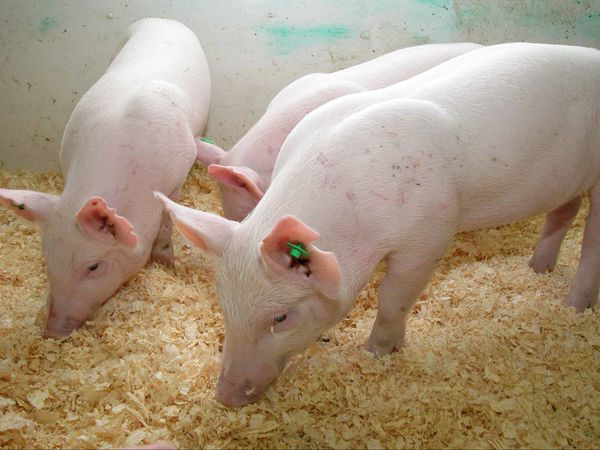 Environmentally friendly pigs: A breed of pig was genetically engineered to produces 65 percent less phosphorous in animal waste and was recently approved for limited production.
Environmentally friendly pigs: A breed of pig was genetically engineered to produces 65 percent less phosphorous in animal waste and was recently approved for limited production. -
2.
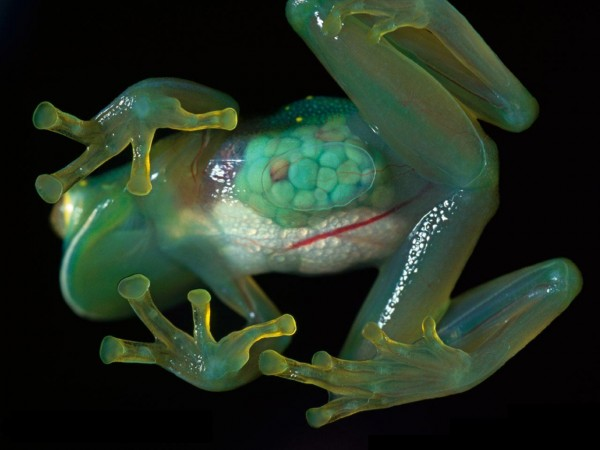 See-through frogs: These "glass frogs" developed a mutation allowing us to see through their skin and that reveals their organs. It is a huge help in figuring out how the animals' organs work, how disease spreads, and how cancers develop in bodies.
See-through frogs: These "glass frogs" developed a mutation allowing us to see through their skin and that reveals their organs. It is a huge help in figuring out how the animals' organs work, how disease spreads, and how cancers develop in bodies. -
3.
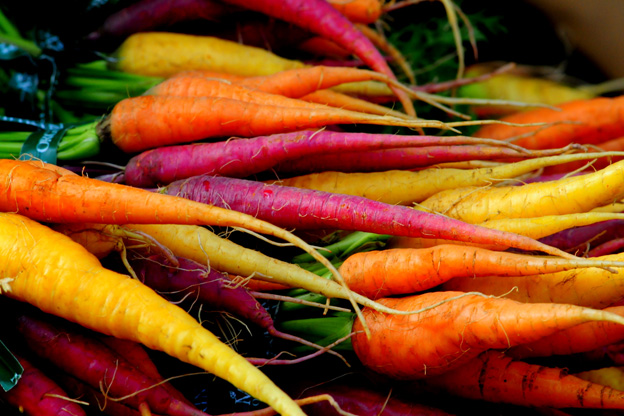 Different colored carrots: These carrots not only pack more color into salads, but also contain more calcium.
Different colored carrots: These carrots not only pack more color into salads, but also contain more calcium. -
4.
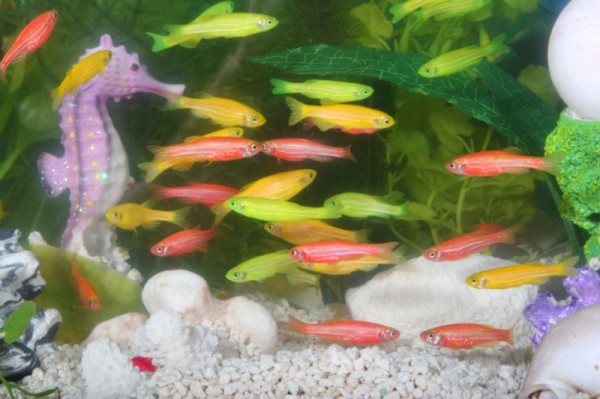 Fish that glow: Dr. Zhiyuan Gong and his colleagues at the National University of Singapore worked with a gene called green fluorescent protein GFP in 1999. This gene was originally extracted from a jellyfish that naturally produced bright green bioluminescence. They inserted the gene into a zebrafish embryo, allowing it to integrate into the zebrafish's genome. This caused the fish to be brightly fluorescent under natural white light and ultraviolet light.
Fish that glow: Dr. Zhiyuan Gong and his colleagues at the National University of Singapore worked with a gene called green fluorescent protein GFP in 1999. This gene was originally extracted from a jellyfish that naturally produced bright green bioluminescence. They inserted the gene into a zebrafish embryo, allowing it to integrate into the zebrafish's genome. This caused the fish to be brightly fluorescent under natural white light and ultraviolet light. -
5.
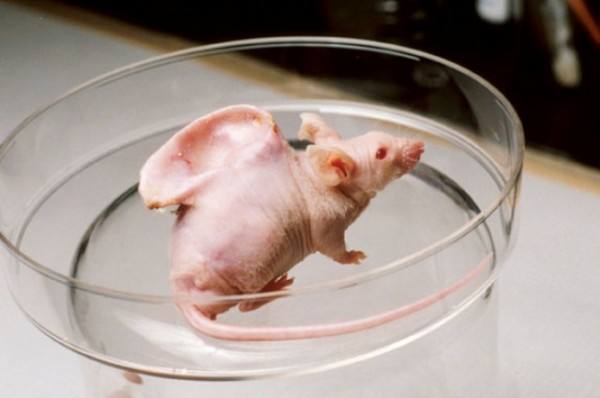 A mouse with an ear on its back: This mouse was created to demonstrate a method of fabricating cartilage structures to transplant into human patients. A resorbable polyester fabric was infused with bovine cartilage cells and implanted under the skin of a hairless mouse.
A mouse with an ear on its back: This mouse was created to demonstrate a method of fabricating cartilage structures to transplant into human patients. A resorbable polyester fabric was infused with bovine cartilage cells and implanted under the skin of a hairless mouse. -
6.
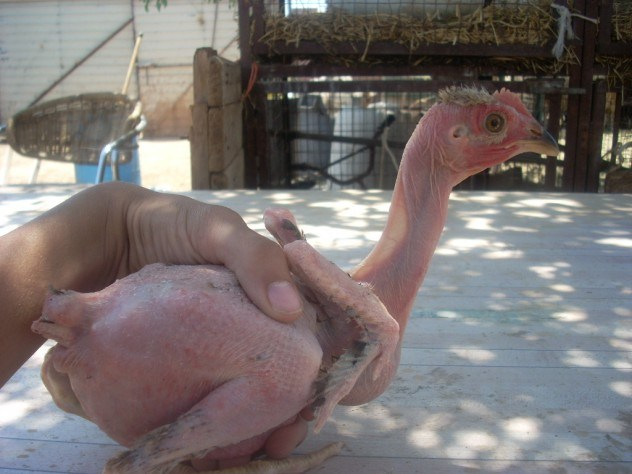 Bald chickens: Scientists in Israel created a breed of featherless chickens that can save time on plucking and are even claimed to be more environmentally friendly. They also significantly reduce the cost of being raised and are created by breeding a regular broiler chicken with a Naked Neck.
Bald chickens: Scientists in Israel created a breed of featherless chickens that can save time on plucking and are even claimed to be more environmentally friendly. They also significantly reduce the cost of being raised and are created by breeding a regular broiler chicken with a Naked Neck. -
7.
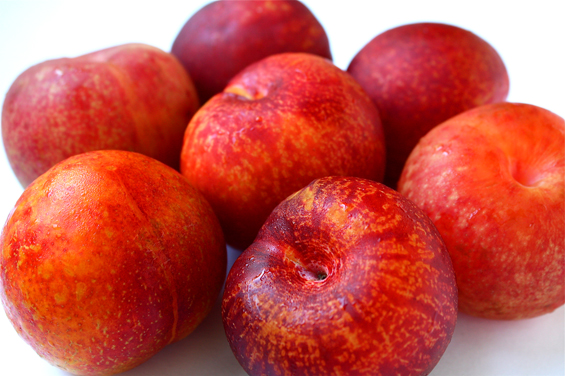 Pluots: Plums and apricots are delicious fruits on their own. Both fruits combined form the genetically modified treat known as the pluot. This fruit is intensely flavored and delicious.
Pluots: Plums and apricots are delicious fruits on their own. Both fruits combined form the genetically modified treat known as the pluot. This fruit is intensely flavored and delicious. -
8.
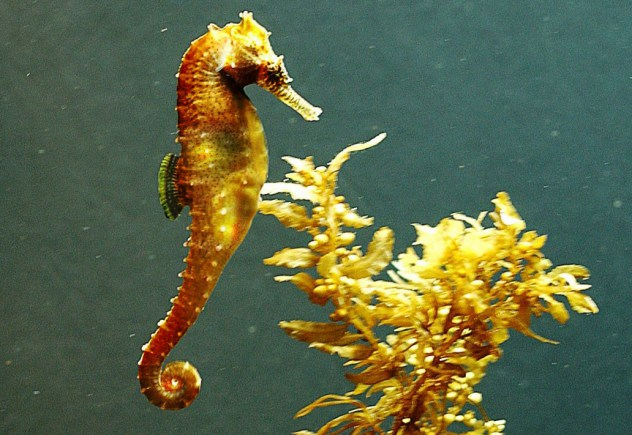 Golden seahorses: Vietnamese scientists created these creatures--a first for the country in the field of genetic modification. They mixed Gold dust with jellyfish proteins, and inserted the substance into seahorses' eggs by using the gene-shooting method.
Golden seahorses: Vietnamese scientists created these creatures--a first for the country in the field of genetic modification. They mixed Gold dust with jellyfish proteins, and inserted the substance into seahorses' eggs by using the gene-shooting method. -
9.
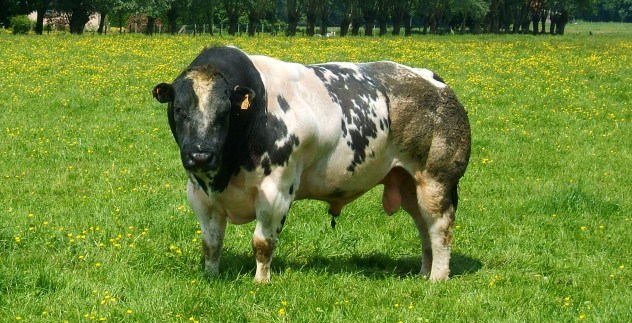 Extremely muscle-y cows: The Belgian Blue is a breed with a defective myostatin gene that is responsible for muscle inhibition. This results in double muscling in the animal. Belgian Blues supposedly have more lean meat and reduced fat content, leading to more health risks and inbreeding than other breeds. This also puts a premium price on their steaks.
Extremely muscle-y cows: The Belgian Blue is a breed with a defective myostatin gene that is responsible for muscle inhibition. This results in double muscling in the animal. Belgian Blues supposedly have more lean meat and reduced fat content, leading to more health risks and inbreeding than other breeds. This also puts a premium price on their steaks. -
10.
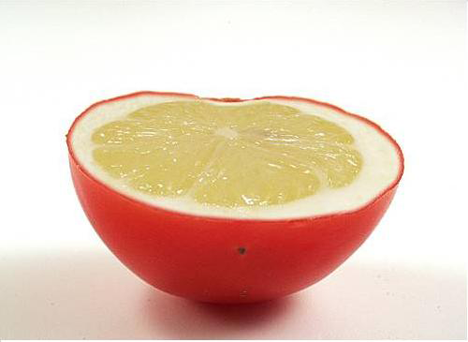 Lematos: The lemato was solely an experiment to determine if scientists could make tomatoes give off the scent of lemons. They succeeded.
Lematos: The lemato was solely an experiment to determine if scientists could make tomatoes give off the scent of lemons. They succeeded. -
11.
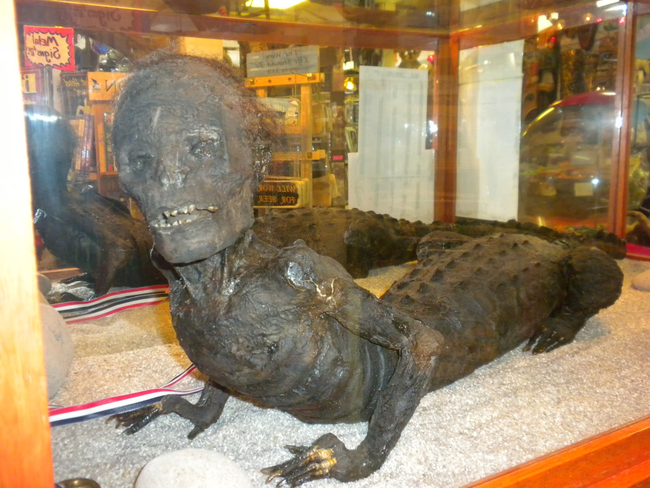 Jake the Alligator Man: Some speculate that this mutant might be a distant ancestor of man. Other theories claim that it was an early, secret genetically engineering project-gone-wrong and wild. Others say he is the corpses of two separate animals stitched together to attract tourists at March's Museum in Long Beach, Washington. It's anyone's guess.
Jake the Alligator Man: Some speculate that this mutant might be a distant ancestor of man. Other theories claim that it was an early, secret genetically engineering project-gone-wrong and wild. Others say he is the corpses of two separate animals stitched together to attract tourists at March's Museum in Long Beach, Washington. It's anyone's guess.
Environmentally friendly pigs: A breed of pig was genetically engineered to produces 65 percent less phosphorous in animal waste and was recently approved for limited production.
11/11
1/11


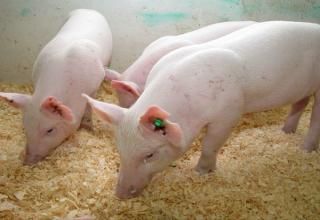
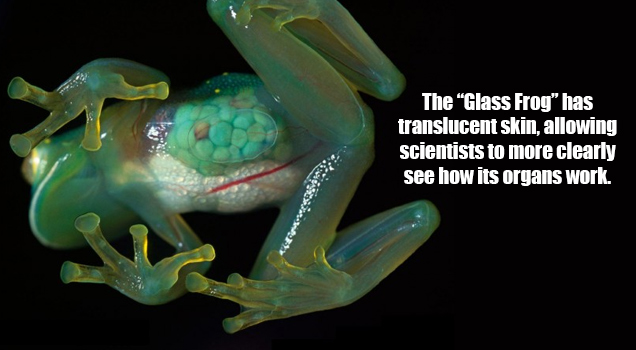





72 Comments